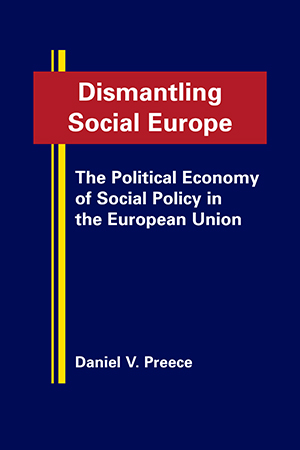Daniel V. Preece
Why is neoliberalism winning out as a social policy in the European Union? Daniel Preece demonstrates how, despite the commitment to "Social Europe" that has been entrenched in the EU treaty framework since the late 1990s, neoliberal actors have successfully reframed the policy debates and affected the welfare policies adopted by the member states. Focusing on the cases of Germany and Ireland, he reveals just how questions of economic competitiveness have come to dominate the EU’s social policy agenda.
Daniel V. Preece teaches political science at Carleton University.
"An original contribution to both the literature that seeks to explain the lack of integration within EU social policy and labor law and that which provides a neo-Gramscian perspective on European integration."—Paul Copeland, Perspectives on Politics
“An original and compelling contribution to the study of EU social policy, neoliberalism, and political contestation in Germany, Ireland, and the European Union as a whole.”—Willem Maas, York University
“A lucid explanation of the impact that globalization, deepening integration, subsidiarity, labor flexibility, and worker security are having on the political economy of the EU. All students and keen observers of international political economy will want to read this excellent book.”—W. Andy Knight, University of Alberta






